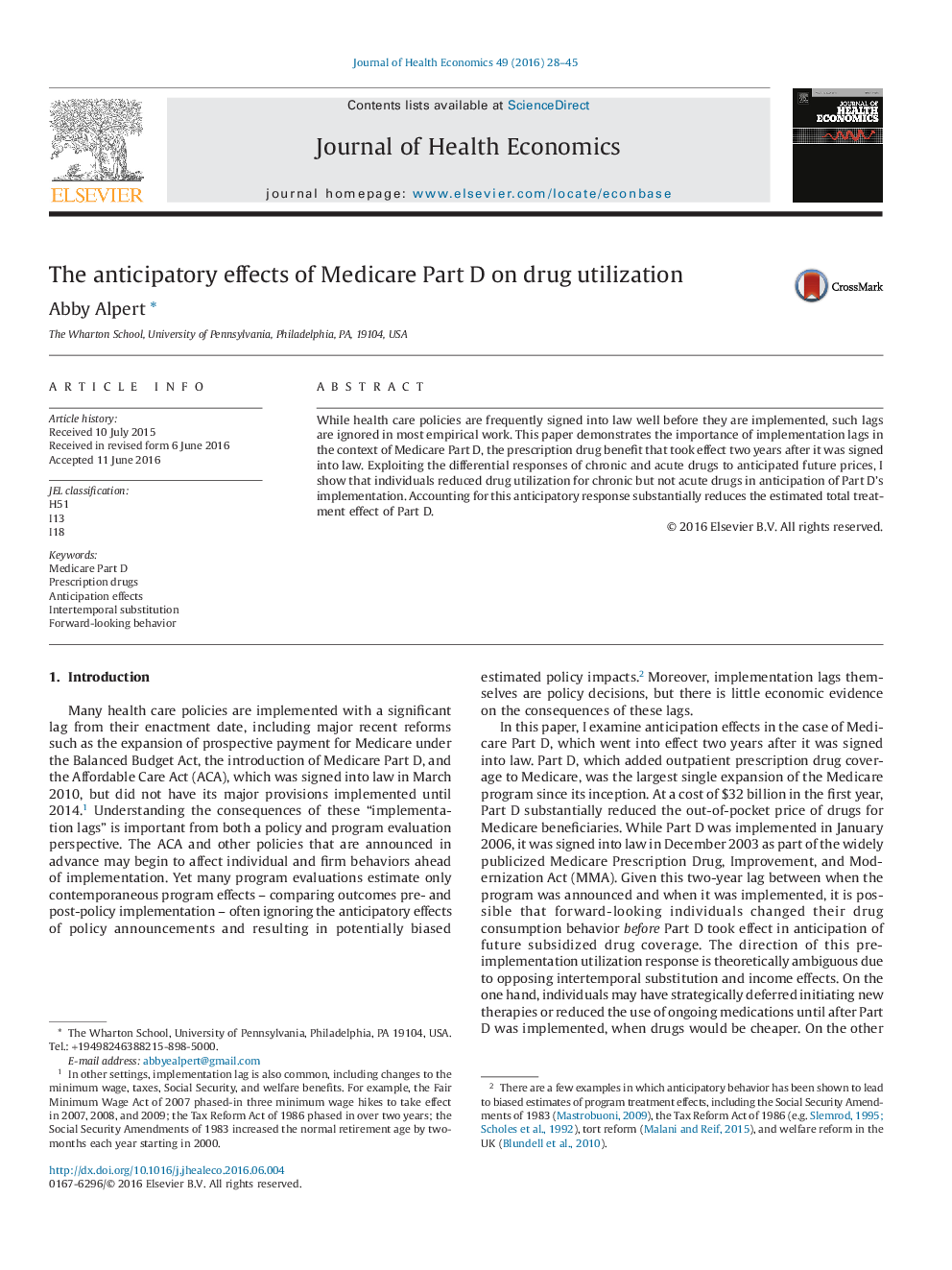| Article ID | Journal | Published Year | Pages | File Type |
|---|---|---|---|---|
| 7363064 | Journal of Health Economics | 2016 | 18 Pages |
Abstract
While health care policies are frequently signed into law well before they are implemented, such lags are ignored in most empirical work. This paper demonstrates the importance of implementation lags in the context of Medicare Part D, the prescription drug benefit that took effect two years after it was signed into law. Exploiting the differential responses of chronic and acute drugs to anticipated future prices, I show that individuals reduced drug utilization for chronic but not acute drugs in anticipation of Part D's implementation. Accounting for this anticipatory response substantially reduces the estimated total treatment effect of Part D.
Related Topics
Health Sciences
Medicine and Dentistry
Public Health and Health Policy
Authors
Abby Alpert,
